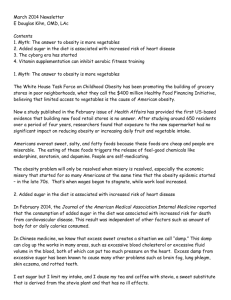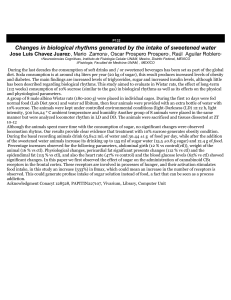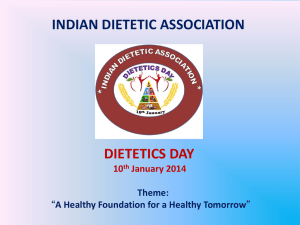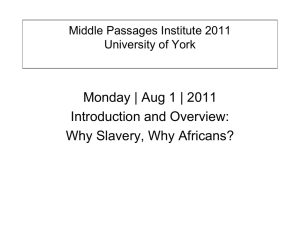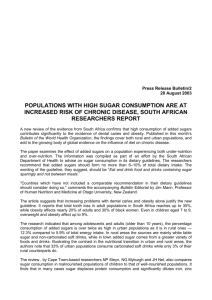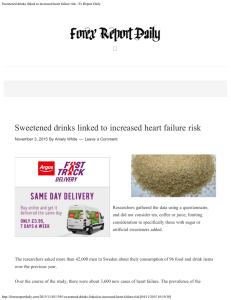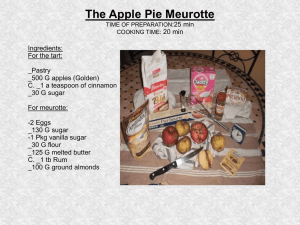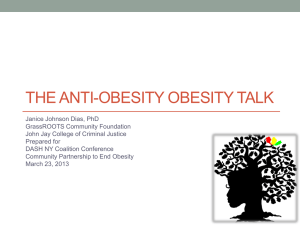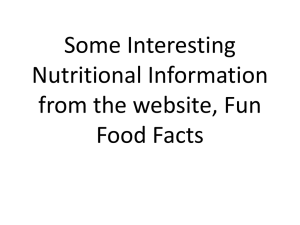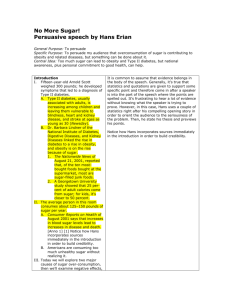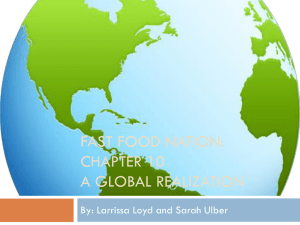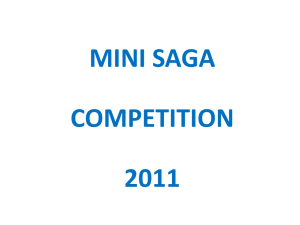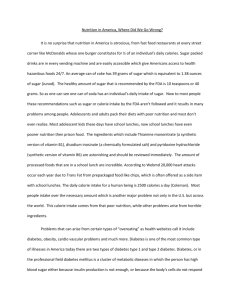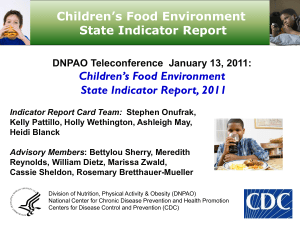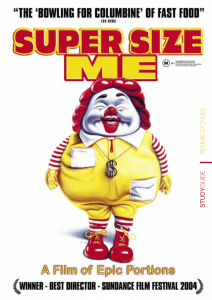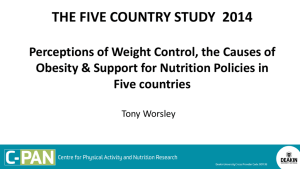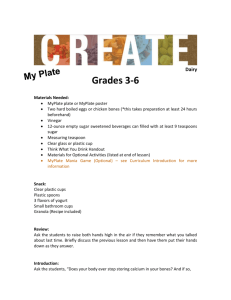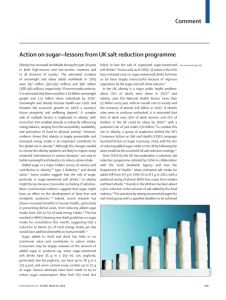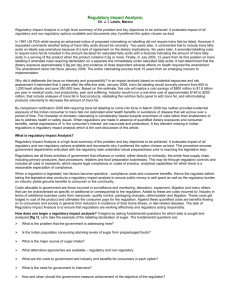Professor Barrie Margetts
advertisement
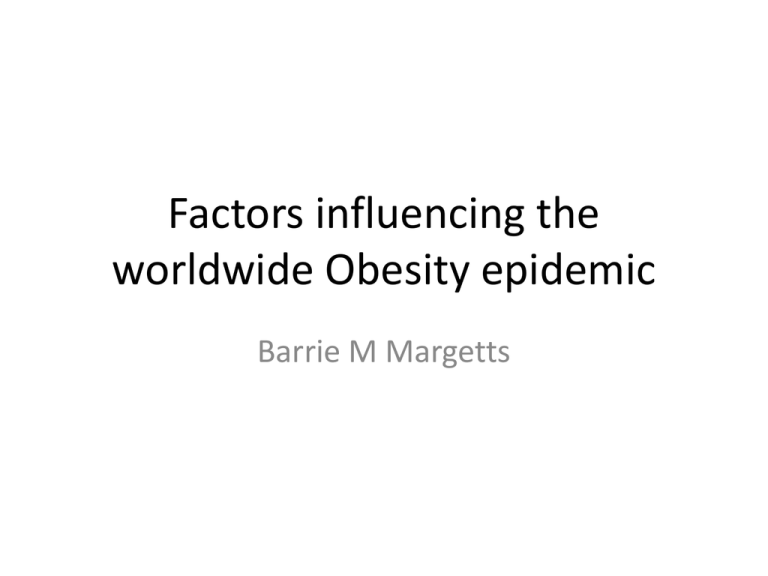
Factors influencing the worldwide Obesity epidemic Barrie M Margetts Outline • Current situation: focus on sugar and processed foods • Recent study in South Africa • Global drivers and challenges • Way forward Swinburn et al 2011 Lancet • Food security and health – Getting enough of the right foods amongst most vulnerable • Continued double burden requires action to improve quality of diet while reaching optimal energy intake – Need nutrient rich sources of food • Avoid high fat, salt and added sugar foods • Influence of global food system driving consumption 10 Corporations Control Almost Everything You Buy — This Chart Shows How PolicyMic.webarchive 11 Percent energy from selected food groups Slimani et al 2009, EPIC Cohorts Trends in soft/sweetened drink consumption LMICs Stuckler and Nestle 2013 Basu S, Vellakkal S, Agrawal S, Stuckler D, et al. (2014) Averting Obesity and Type 2 Diabetes in India through Sugar-Sweetened Beverage Taxation: An Economic-Epidemiologic Modeling Study. PLoS Med 11(1): e1001582. doi:10.1371/journal.pmed.1001582 http://www.plosmedicine.org/article/info:doi/10.1371/journal.p 16 med.1001582 Trend: Added Sugar Intake: South Africa Vorster et al 2014 UK about 95g per day % Consuming sucrose sweetened beverages (SSBs) 70 60 50 40 2005 30 2010 20 10 0 Rural Male Rural Female Urban Male Urban Female Changes in BMI 2005-2010 by % energy added sugar 1.2 1 0.8 <10%TE sugar 0.6 >10%TE sugar 0.4 0.2 0 Rural Male Rural Female Urban Male Urban Female What to do? • Is it possible to stop the rise in obesity worldwide? • What are the most effective approaches? • Need to think about and understand the deep underlying causes and address these drivers – Primary prevention v tertiary prevention Briggs et al 2013 BMJ Conclusion “A 20% tax on sugar sweetened drinks would lead to a reduction in the prevalence of obesity in the UK of 1.3% (around 180 000 people). The greatest effects may occur in young people, with no significant differences between income groups. Both effects warrant further exploration. Taxation of sugar sweetened drinks is a promising population measure to target population obesity, particularly among younger adults”. Monitoring the impacts of trade agreements on food environments Obesity Reviews pages 120-134, 17 SEP 2013 DOI: 10.1111/obr.12081 http://onlinelibrary.wiley.com/doi/10.1111/obr.12081/full#obr12081-fig-0001 Summary points • There is now evidence from Hungary, France, Denmark, Norway, Brazil and Mexico that shows with political commitment fiscal policies can be implemented, and can have an impact. • Need to resist the undue influence on policy of the vested interests of ‘Big Food’ • Voluntary codes have not been shown to work: – Either in terms of reformulation – Or compliance with codes of marketing • Exploit loopholes eg web-based games etc are used instead of TV adverts, partly because the companies do not keep their promises. Reversing the global trends • Halt spread of ultra high processed foods and sweetened beverages- major concern in LMICs • Need legislation and fiscal measures to change supply side; changing demand side alone will not work • International codes/structures required now because of nature of food supply system: driven by health not profit alone • Population/prevention needs to be strengthened and to balance efforts at individual/treatment level
